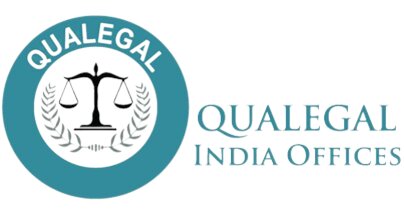Best Communications & Media Law Lawyers in New Delhi
Share your needs with us, get contacted by law firms.
Free. Takes 2 min.
List of the best lawyers in New Delhi, India
About Communications & Media Law in New Delhi, India:
Communications & Media Law in New Delhi, India governs the regulation and protection of media and communication rights in the country. This field of law covers various aspects such as freedom of speech, defamation, intellectual property rights, data protection, and advertising regulations.
Why You May Need a Lawyer:
You may need a lawyer specializing in Communications & Media Law in New Delhi if you are facing issues with defamation, copyright infringement, privacy violations, contract disputes, or regulatory compliance in the media and communications industry. A lawyer can provide legal advice, represent you in court, and help protect your rights under local laws.
Local Laws Overview:
In New Delhi, India, Communications & Media Law is mainly governed by the Indian Constitution, the Information Technology Act, 2000, the Press Council Act, 1978, and various other regulations and guidelines issued by the Ministry of Information and Broadcasting. These laws aim to ensure freedom of expression while also maintaining ethical and legal standards in the media and communication sectors.
Frequently Asked Questions:
Q: What is defamation and how is it regulated in New Delhi, India?
A: Defamation refers to the act of making false statements that harm someone's reputation. In New Delhi, defamation is regulated by the Indian Penal Code, which defines defamation as both a civil wrong and a criminal offense.
Q: Can I use someone else's copyrighted work in my media content?
A: Using someone else's copyrighted work without permission may constitute copyright infringement. It is advisable to seek legal advice and obtain the necessary licenses or permissions before using copyrighted material in your media content in New Delhi, India.
Q: How are data protection laws relevant to Communications & Media Law in New Delhi, India?
A: Data protection laws, such as the Personal Data Protection Bill, regulate the collection, storage, and usage of personal data in the media and communication sector. Compliance with these laws is essential to protect individuals' privacy rights.
Q: What are the advertising regulations that media and communication companies need to comply with in New Delhi, India?
A: Media and communication companies in New Delhi must comply with the Advertising Standards Council of India (ASCI) Code for Self-Regulation in Advertising, which sets out guidelines for ethical advertising practices and protecting consumers from misleading advertisements.
Q: How can I protect my intellectual property rights in the media and communication industry in New Delhi, India?
A: You can protect your intellectual property rights, such as trademarks, copyrights, and patents, by registering them with the appropriate authorities in New Delhi, India. A lawyer specializing in intellectual property law can help you navigate the registration process and enforce your rights against infringement.
Additional Resources:
For legal advice and assistance in Communications & Media Law in New Delhi, India, you can contact the Delhi High Court Bar Association or the Media & Entertainment Law Firm in the city. You may also refer to the Ministry of Information and Broadcasting's website for updates on media regulations and policies.
Next Steps:
If you require legal assistance in Communications & Media Law in New Delhi, India, it is advisable to consult with a qualified lawyer who has experience in this field. You can schedule a consultation to discuss your case, understand your rights and obligations, and receive guidance on how to proceed with your legal matter.
Lawzana helps you find the best lawyers and law firms in New Delhi through a curated and pre-screened list of qualified legal professionals. Our platform offers rankings and detailed profiles of attorneys and law firms, allowing you to compare based on practice areas, including Communications & Media Law, experience, and client feedback.
Each profile includes a description of the firm's areas of practice, client reviews, team members and partners, year of establishment, spoken languages, office locations, contact information, social media presence, and any published articles or resources. Most firms on our platform speak English and are experienced in both local and international legal matters.
Get a quote from top-rated law firms in New Delhi, India — quickly, securely, and without unnecessary hassle.
Disclaimer:
The information provided on this page is for general informational purposes only and does not constitute legal advice. While we strive to ensure the accuracy and relevance of the content, legal information may change over time, and interpretations of the law can vary. You should always consult with a qualified legal professional for advice specific to your situation.
We disclaim all liability for actions taken or not taken based on the content of this page. If you believe any information is incorrect or outdated, please contact us, and we will review and update it where appropriate.













